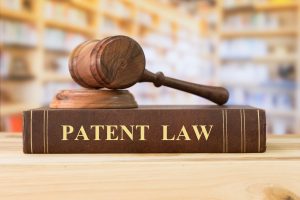 Ever since the Supreme Court’s 2014 decisions in Octane Fitness and Highmark, the landscape for attorneys’ fees motions in patent cases has changed dramatically. No longer a rare occurrence, fees motions are more frequent and granted more often. In fact, the number of fees motions filed since the Supreme Court loosened the standards for recovering fees from losing parties reportedly doubled in just two years post-Octane — and has showed no signs of slowing more recently. That is not surprising, considering the increased willingness of District Court judges to award fees in amounts that can reach into the millions of dollars. Put another way, more patent cases apparently present exceptional circumstances, justifying fee awards by the courts. While depending on your perspective you may hail or bemoan the “weaponization” of attorneys’ fees motions in patent litigation, there is no doubt that they have become a more important consideration for litigators and their clients. In such an environment, monitoring issued decisions on the topic is a necessity.
Ever since the Supreme Court’s 2014 decisions in Octane Fitness and Highmark, the landscape for attorneys’ fees motions in patent cases has changed dramatically. No longer a rare occurrence, fees motions are more frequent and granted more often. In fact, the number of fees motions filed since the Supreme Court loosened the standards for recovering fees from losing parties reportedly doubled in just two years post-Octane — and has showed no signs of slowing more recently. That is not surprising, considering the increased willingness of District Court judges to award fees in amounts that can reach into the millions of dollars. Put another way, more patent cases apparently present exceptional circumstances, justifying fee awards by the courts. While depending on your perspective you may hail or bemoan the “weaponization” of attorneys’ fees motions in patent litigation, there is no doubt that they have become a more important consideration for litigators and their clients. In such an environment, monitoring issued decisions on the topic is a necessity.
Most IP lawyers, if asked about a fees motion in a patent case, would likely first think about the typical scenario under which these types of motions arise: a hapless plaintiff asserting a weak patent that is bounced in early motion practice. Or a serial plaintiff, also asserting a dubious patent, who finally runs up against a defendant determined to fight rather than settle. While those kinds of situations may represent the bulk of fee requests in patent cases, to a certain extent there is not much new ground being plowed in decisions involving these typical scenarios. By now, experienced patent litigators are familiar with the types of behaviors and positions that can impact on an attorneys’ fee decision, while hopefully avoiding doing anything to create problems for themselves and their clients.
While continued monitoring of attorneys’ fees decisions where fees are or are not awarded against a losing plaintiff is important for patent litigators at all levels, it can be just as important to consider what can lead to a grant of attorneys’ fees for a losing patent defendant. Considering the pro-defendant climate that has prevailed in the patent space over the last half-decade (at least), these types of decisions have understandably felt rarer than those decisions where the losing plaintiff is the party tagged with paying fees. At minimum, studying cases where losing defendants have to pay fee awards is a good reminder that litigation misconduct can occur on both sides of a case. And that advancing frivolous positions is not the exclusive domain of patentees, but rather can originate just as easily from the alleged infringer’s side of the case as well. In short, we can learn from demonstrations of bad behavior — regardless of which party (or when both parties) engage in it.

The Law Firm’s Guide To Trust Accounting And Three-Way Reconciliation
Proper trust accounting and three-way reconciliation are essential for protecting client funds and avoiding serious compliance risks. In this guide, we break down these critical processes and show how legal-specific software can help your firm stay accurate, efficient, and audit-ready.
A recently unsealed fees decision out of New Jersey is illustrative of the consequences a games-playing defendant can face as the loser of a patent case. The March 28, 2017, decision by Judge Jerome B. Simandle in Sabinsa Corporation v. Olive Lifesciences Pvt. Ltd., Civ. Act. No. 14-4739 (D.N.J.) awarded nearly a million dollars in attorneys’ fees in a competitor patent case with an interesting fact pattern. The lawsuit was filed in 2014, with Sabinsa claiming that Olive infringed on a patent related to a turmeric-based composition sold by Sabinsa as its Curcumin C3 Complex®. Less than a month after being sued, Olive retained a major law firm, Fox Rothschild, to defend it. (Opinion at 2). The following July, Olive moved for summary judgment on numerous grounds. While the motion was pending, however, Fox Rothschild filed a motion to withdraw, on the grounds that Olive had instructed it to cease all work on the case a few weeks earlier. At a hearing on the motion to withdraw before a magistrate judge, Olive’s representative told the court that the parties were settling the case, and even though Olive was a corporation, it no longer needed counsel. Despite the magistrate judge’s admonitions to the contrary at the hearing, substitute counsel was never hired by Olive — even after the magistrate judge issued a further order directing Olive to hire new counsel by February 2016 or face entry of default judgment. (Opinion at 3). Eventually, Fox Rothschild was let out of the case, with Olive’s motion for summary judgment denied as premature pending a claim construction determination. At that point, Olive asked for more time due to an alleged fire at its factory in India. Despite securing that additional delay, Olive continued to refrain from hiring new counsel. Eventually Sabinsa’s motion for default was granted, including the award of attorneys’ fees.
In awarding fees, Judge Simandle noted that Olive had unilaterally chosen to abandon the litigation by refusing to hire substitute counsel — despite being given numerous opportunities to do so over the course of a year. By ignoring court directives that substitute counsel was needed, Olive committed litigation misconduct, especially since the court also found that Olive was a sophisticated company with worldwide sales reach across “a wide range of products.” (Opinion at 23). At the same time, Olive had tried to get an early win in the case with its summary judgment motion, making its later abandonment of its defense even more troubling for the court. In sum, Olive had tried to play the patent defense game on its own terms and was found wanting. Accordingly, an award of fees to the patentee was warranted.
Ultimately, a decision like the one in Sabinsa should serve as a cautionary tale for patent litigation defendants who are clearly unprepared to mount a full defense of the case brought against them. Hoping for an easy, early win, while cutting bait after it becomes clear that such a win is not forthcoming, is a recipe for having to pay your opponent’s fees according to the court in Sabinsa. For patent litigators looking to secure defense work, this decision should serve as a reminder of the critical importance of gauging the prospective client’s stomach for the fight — and willingness to see things through to their conclusion. Even on the defense side, the litigation process must be respected, or else.
Please feel free to send comments or questions to me at [email protected] or via Twitter: @gkroub. Any topic suggestions or thoughts are most welcome.

Inside The Minds Working At US Midsize Law Firms: 2025 Priorities Revealed
Midsize firms want smarter tech, not more. Our 2025 industry report shows how the right tools—and strategy—can drive growth, efficiency, and better client outcomes.
Gaston Kroub lives in Brooklyn and is a founding partner of Kroub, Silbersher & Kolmykov PLLC, an intellectual property litigation boutique, and Markman Advisors LLC, a leading consultancy on patent issues for the investment community. Gaston’s practice focuses on intellectual property litigation and related counseling, with a strong focus on patent matters. You can reach him at [email protected] or follow him on Twitter: @gkroub.